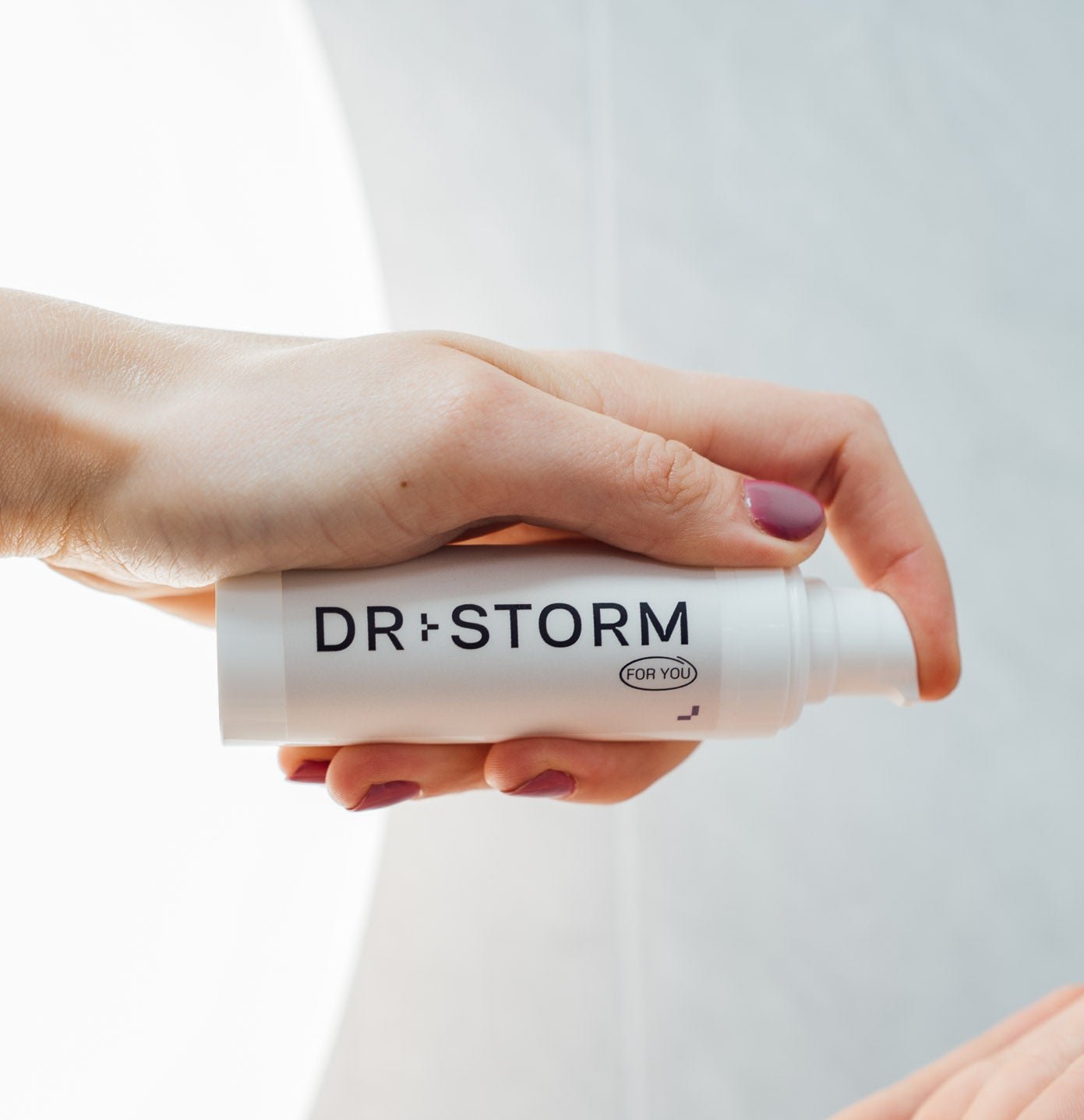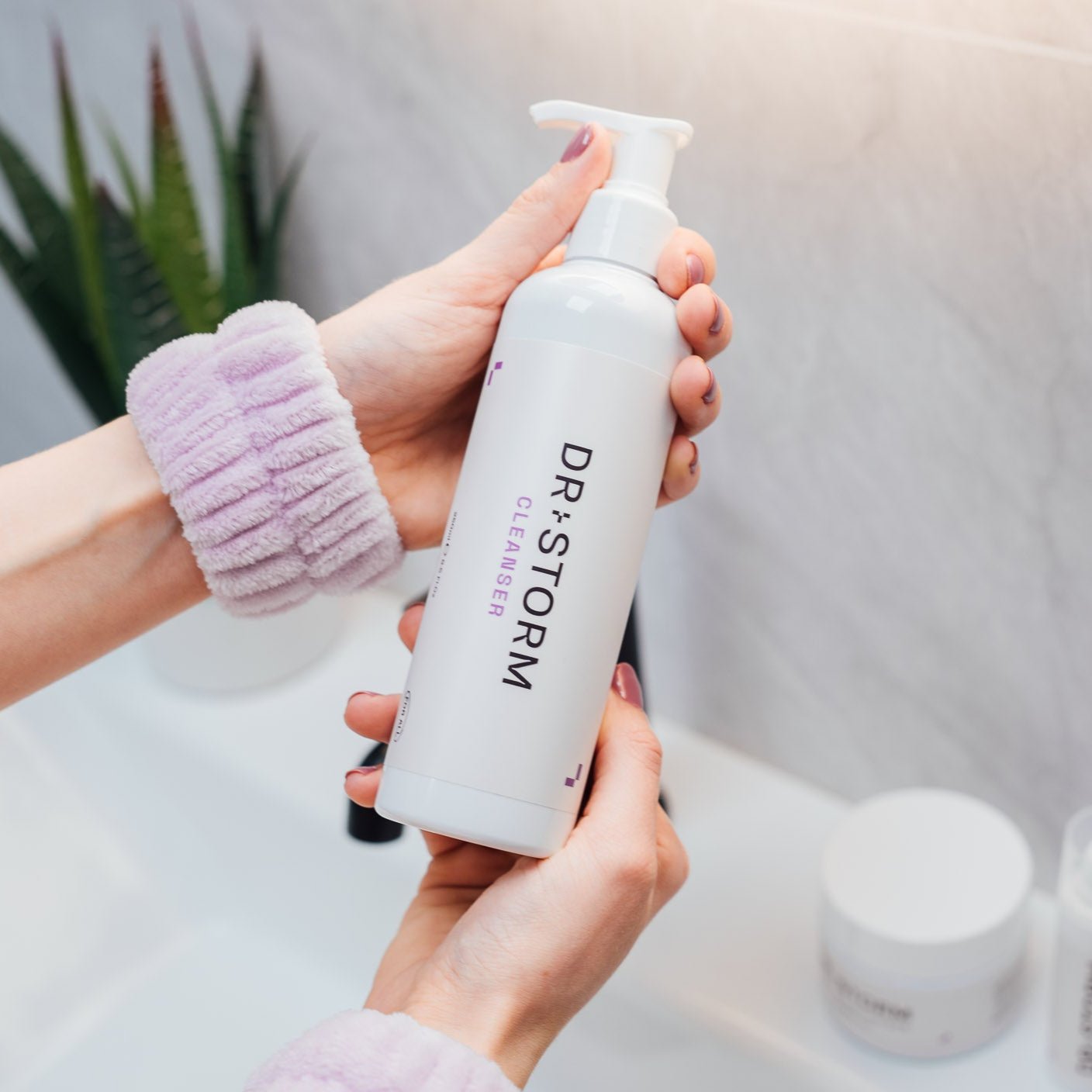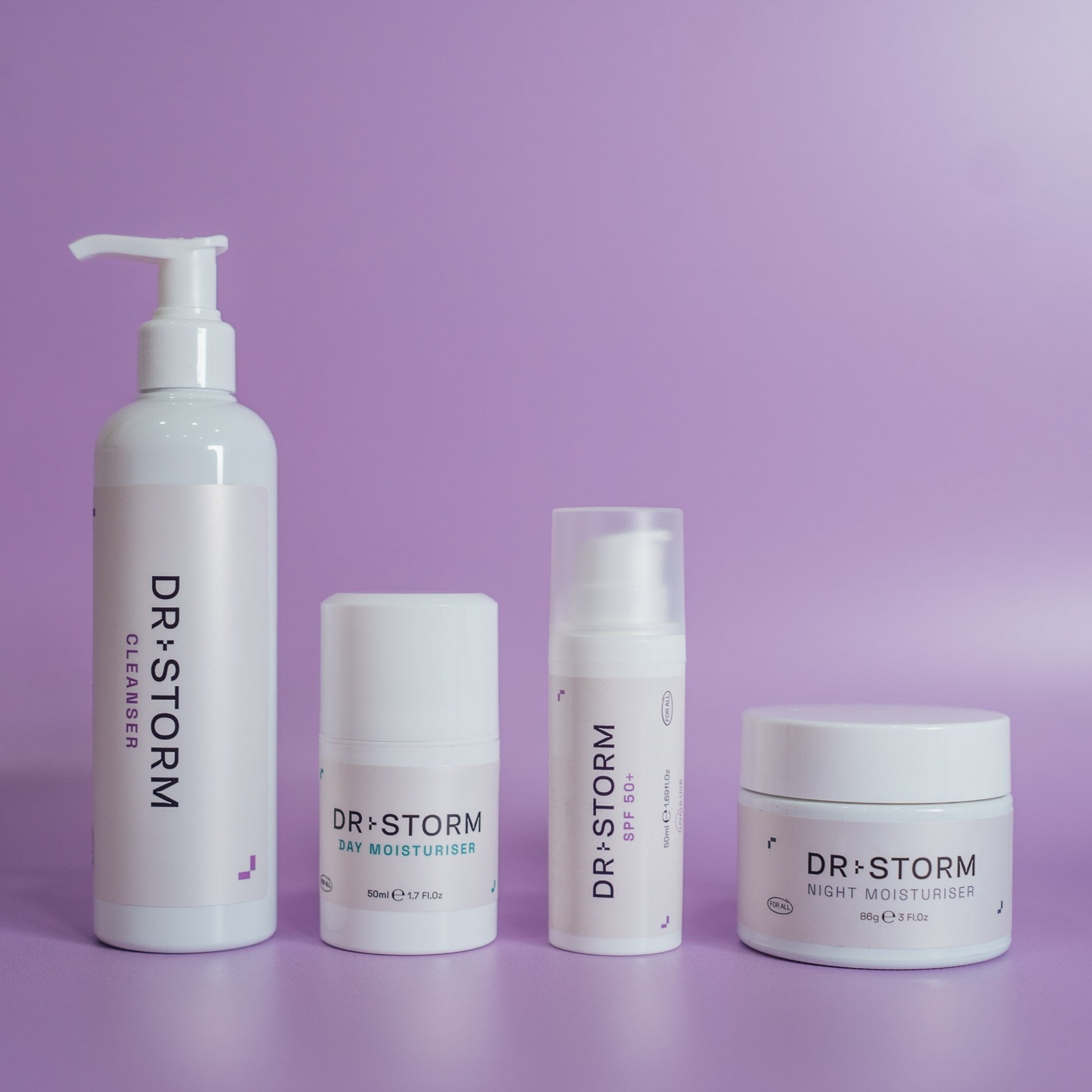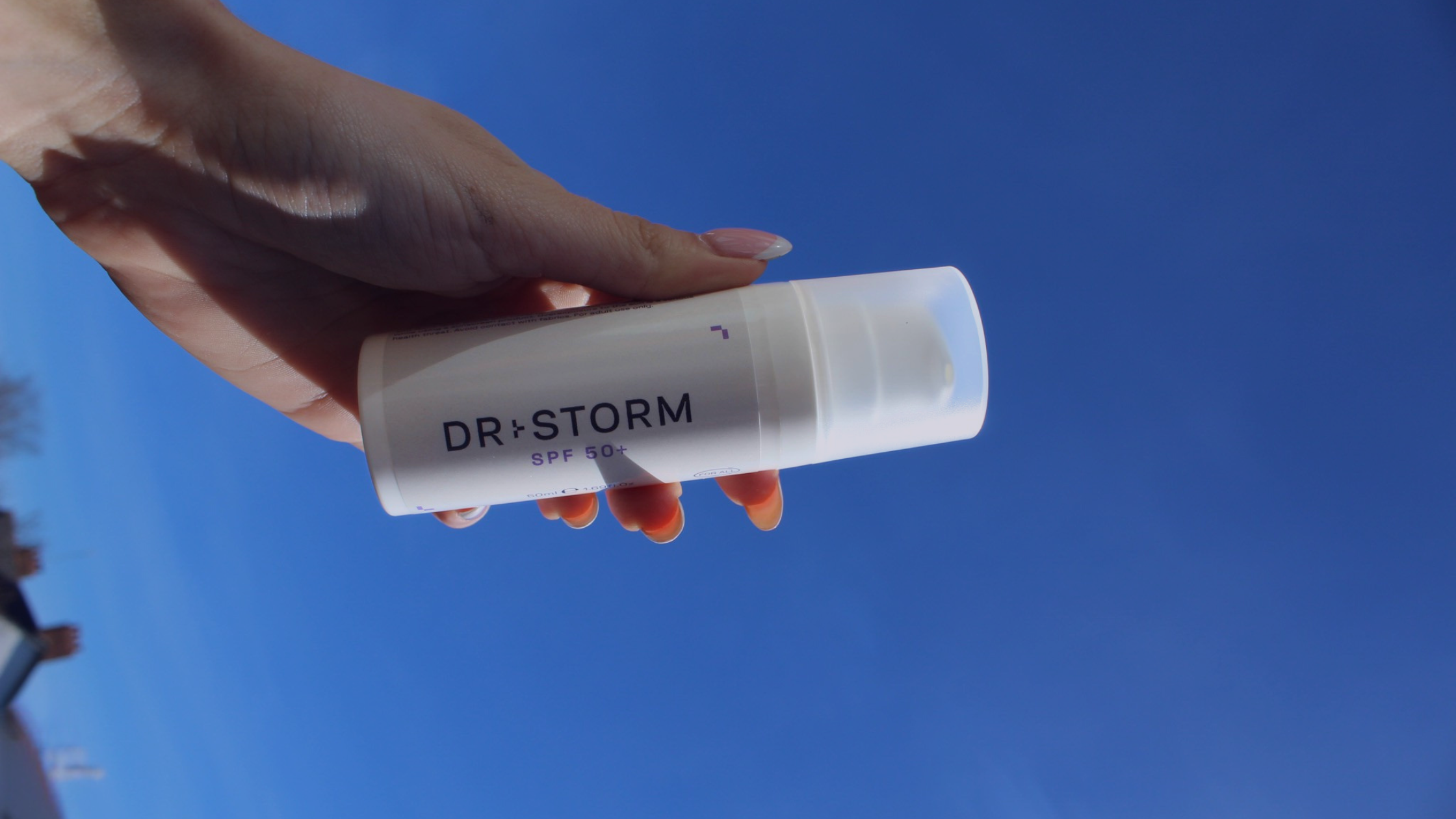When it comes to skincare, the label on the bottle can be just as confusing as the product itself. Between scientific jargon and buzzwords, it’s easy to feel overwhelmed. But here’s the truth: understanding a few key ingredients and knowing which ones to steer clear of—can help you make more confident, informed choices for your skin.
Whether you’re trying to treat acne, smooth fine lines, or pigmentation, the right ingredients can make all the difference. Here’s a simple guide to what’s worth looking for and what might be doing more harm than good.
The Ingredients That Actually Work (Backed by Evidence)
Let’s start with the ingredients that have consistently shown results in clinical studies, ones we trust at Dr Storm because they’re backed by science, not hype.
Tretinoin (Prescription Vitamin A):
Unlike over-the-counter retinol, tretinoin is a prescription-strength ingredient proven to treat fine lines, pigmentation, acne, and rough skin texture. It speeds up skin cell turnover and stimulates collagen but it must be used with care and guidance to avoid irritation.
Azelaic Acid:
Particularly useful for rosacea, pigmentation, and acne-prone skin, azelaic acid has anti-inflammatory and brightening properties without the harshness of some exfoliants.
Glycerin and Hyaluronic Acid:
Both are humectants meaning they are moisturisers which can help hold water on the surface of the skin. These are go-to ingredients for hydration and are especially helpful in drier climates or during winter.
Ceramides:
These are lipids (fats) that help maintain your skin’s natural barrier. If your skin feels dry, tight, or reactive, some feel ceramides can help restore balance and comfort.
What to Be Wary Of: Harsh, Hyped, and Unnecessary
Some ingredients sound impressive or are widely used but can end up causing more issues than they solve, especially if your skin is sensitive or already struggling.
Fragrance (Especially Synthetic Parfum):
Fragrance is one of the most common causes of irritation. Even if it smells lovely, it doesn’t benefit your skin and can lead to redness, itching, or flare-ups, especially in sensitive or rosacea-prone skin.
Alcohol (Specifically Denatured Alcohol / Alcohol Denat.):
Often used to create a lightweight feel or help products dry quickly, this type of alcohol can strip the skin of moisture and damage the protective barrier over time.
Essential Oils (like lavender, citrus, and peppermint):
While ‘natural’ might sound comforting, essential oils can be surprisingly irritating to skin, particularly when used in leave-on products. They’re often included for scent rather than function.
Physical Exfoliants (Scrubs with harsh granules):
If a product feels ‘scratchy,’ it’s likely doing more harm than good. Micro-tears from abrasive scrubs can compromise your skin barrier, leading to inflammation and sensitivity.
A Simpler Way to Choose Skincare
Here’s a helpful mindset shift: focus less on what’s in everything, and more on whether it’s needed in the first place. At Dr. Storm, we believe effective skincare doesn’t need 10 different steps, it just needs the right ingredients, used in the right way.
When choosing products, look for:
-
A short, well-explained ingredient list
-
Products designed for your concern (not just ‘anti-ageing’ in general)
-
A brand that prioritises science, not trends
And if you’re using active ingredients like tretinoin, keep your supporting products simple think gentle moisturisers and barrier-friendly cleansers. The goal is to support your skin, not overload it.
Final Thoughts
You don’t need to become a chemist to understand your skincare. But by tuning out the noise and focusing on ingredients that are truly beneficial, you’ll feel more in control and more confident in your skin.
If you’re unsure where to start, our Personalised Skincare treatment takes all the guesswork out. One product, tailored to your needs, with evidence-based ingredients and nothing unnecessary.







